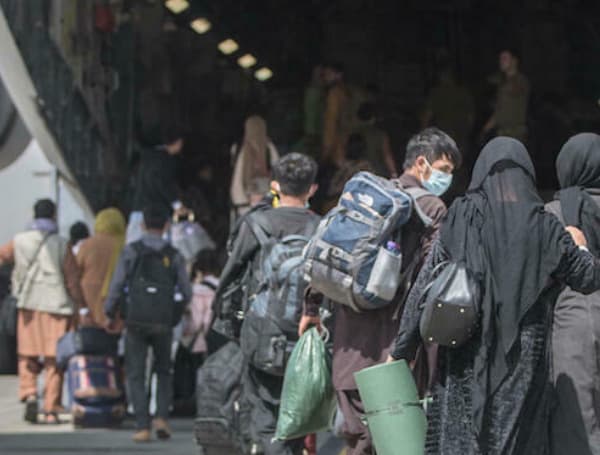Afghanistan’s government failed to recognize that the U.S. intended to withdraw, one of several reasons it collapsed 10 days after the Taliban takeover and two weeks before the U.S. military exit on Aug. 30, 2021, Congress’ Afghanistan watchdog revealed Wednesday.
After the fall of Kabul, the House Committee on Oversight and Reform directed the Special Investigator General for Afghanistan Reconstruction (SIGAR) to produce a report pinning down the reasons for the Afghan government’s dissolution, including why 20 years of U.S. state building efforts failed to produce a viable democratic government in Afghanistan.
In the report, dated Nov. 15, SIGAR found that not only was the Afghan government underequipped to function on its own and dominated by a strongman, but that the U.S. negligence virtually guaranteed the Taliban a victory.
“U.S. efforts to build and sustain Afghanistan’s governing institutions were a total, epic, predestined failure on par with the same efforts and outcome in the Vietnam war, and for the same reasons,” Chris Mason, associate professor of national security at the U.S. Army War College, said in a statement to SIGAR.
SIGAR assembled the report through extensive interviews with individuals close to the situation and supplemented with media reports.
Of $145 billion dedicated to Afghanistan reconstruction since 2002, $36.3 billion went to building a “stable, representative and democratic” government in Afghanistan, according to the report. Nevertheless, the government evaporated when then-president Ashraf Ghani fled in the wake of the Taliban’s rapid takeover and U.S. military exit.
“Over nearly 20 years and three U.S. presidencies, the United States had vacillated on the issue of military withdrawal,” SIGAR wrote. “Mixed messaging” from U.S. officials in Washington, Doha and Afghanistan leading up to the withdrawal further convinced the Afghan government against making preparations to adapt to a world where the Taliban held political legitimacy.
The Trump administration’s decision to exclude the Afghan government from peace negotiations with the militant Taliban weakened the Afghan government’s negotiating position relative to the Taliban’s, reinforcing the Taliban’s refusal to compromise, the report found. In addition, Ghani’s autocratic governing style and detachment from reality also doomed him.
President Ghani “hid in the clouds, clutching to power, poorly informed,” former Al Jazeera correspondent Charlotte Bellis told SIGAR, citing Afghan negotiators.
While the U.S. primarily failed to address corruption in the country’s government and its election system, it did make some progress in building governing institutions, SIGAR found. Remnants of these institutions, including the ministries of finance and health as well as the country’s central bank, may persist 15 months into the Taliban’s rule.
SIGAR provided the State Department, Department of Defense and U.S. Agency for International Development (USAID), agencies that each played a pivotal role in devising and carrying out reconstruction activities, the opportunity to review and add to the report, SIGAR said.
Only the State Department submitted comments.
“In communications with the government of then-Afghan President Ghani, high-level officials in the Biden administration made clear that the United States was preparing for a full withdrawal of forces from Afghanistan,” the State Department wrote in a letter to SIGAR, published in the report.
“The standard by which the U.S. government succeeded or failed in its political objectives needs to be wholly reconsidered in this report,” it added.
Congress authorized SIGAR in 2008 to account for waste, fraud and abuse relating to billions of dollars in aid aimed at rebuilding Afghan society and government during the U.S.’ 20-year war against the Taliban.
Visit Tampafp.com for Politics, Sports, and National Headlines. Support journalism by clicking here to our GiveSendGo or sign up for our free newsletter by clicking here.
Android Users, Click Here To Download The Free Press App And Never Miss A Story. Follow Us On Facebook Here Or Twitter Here.
